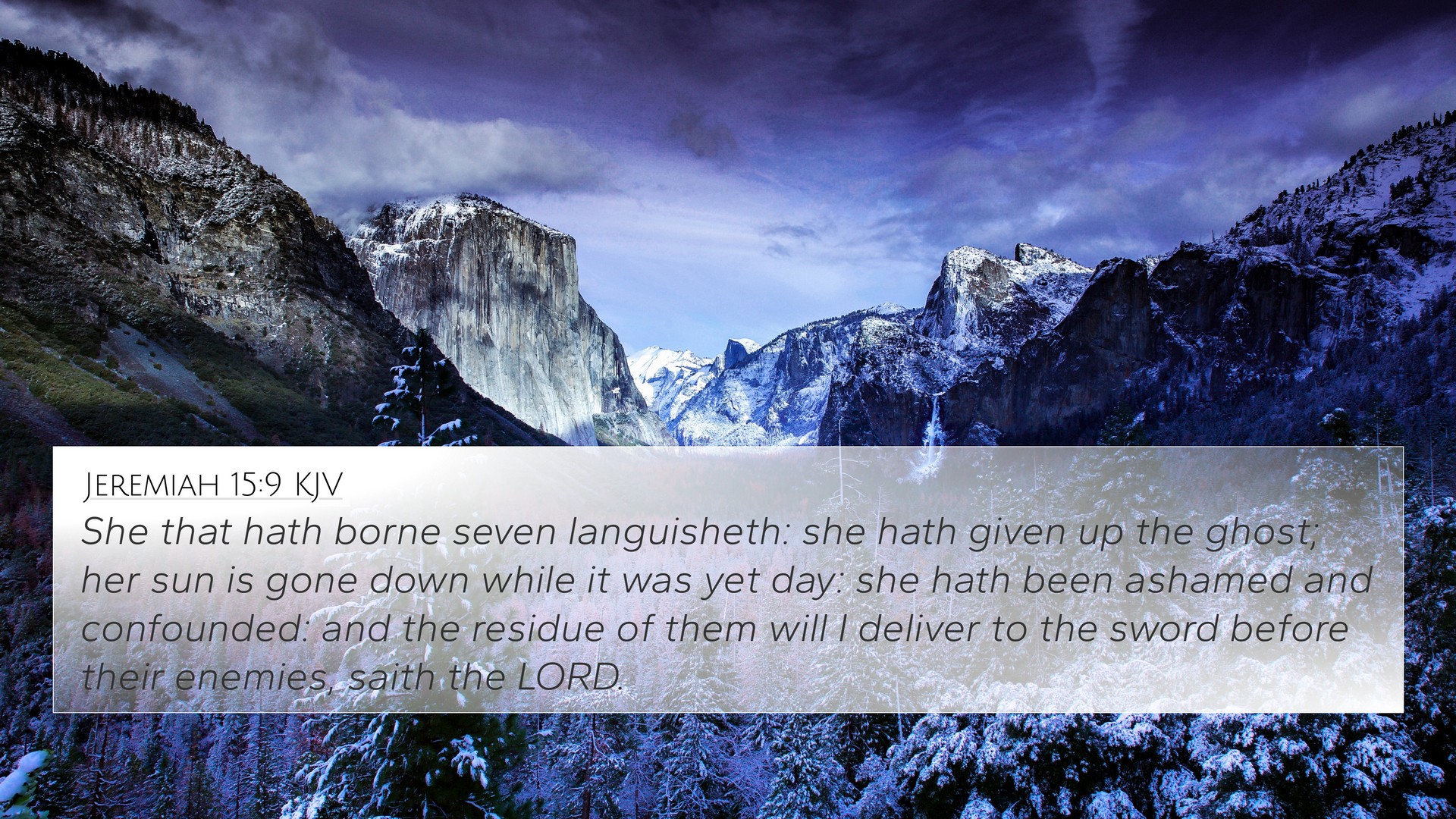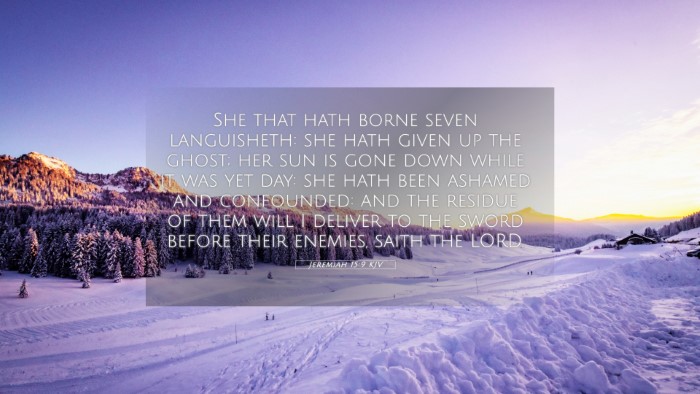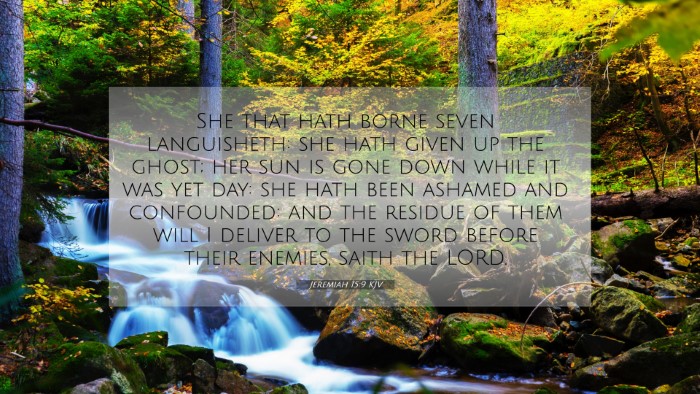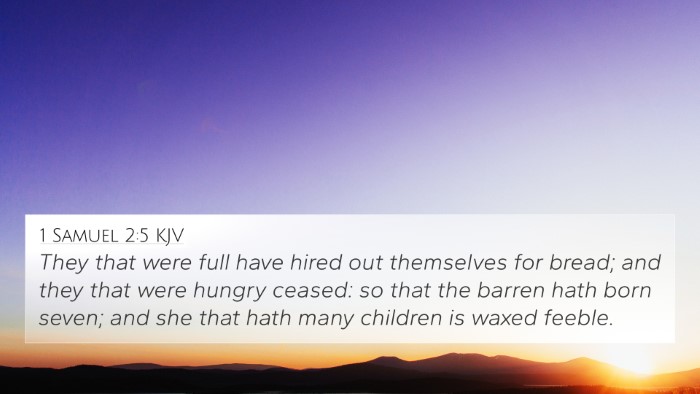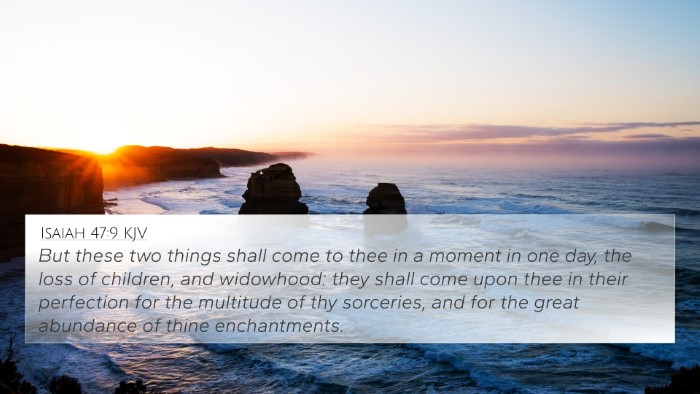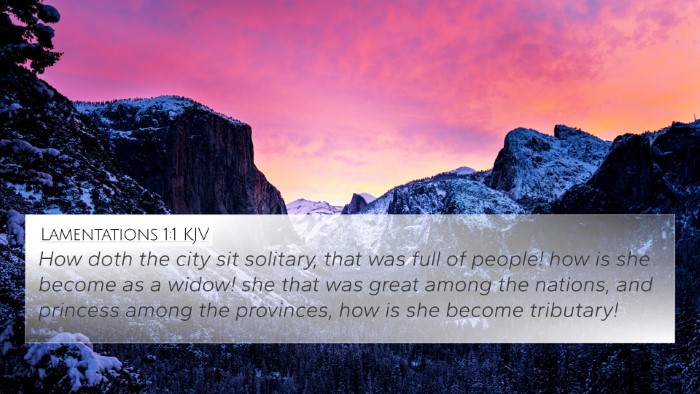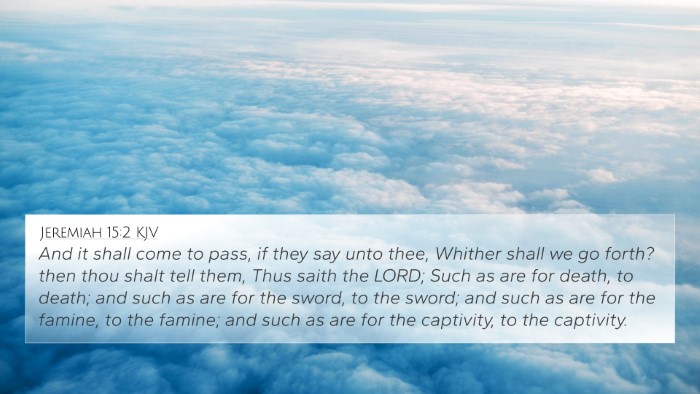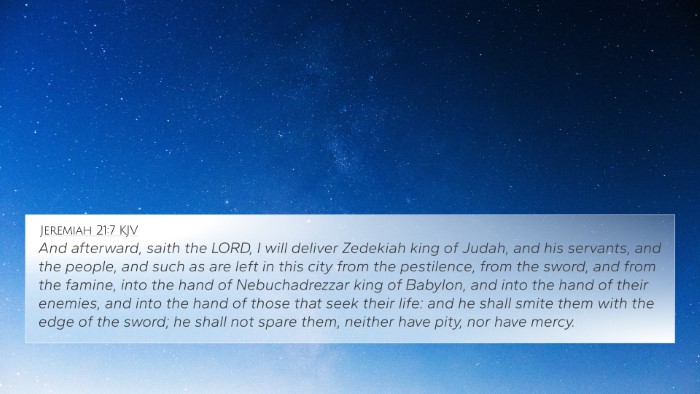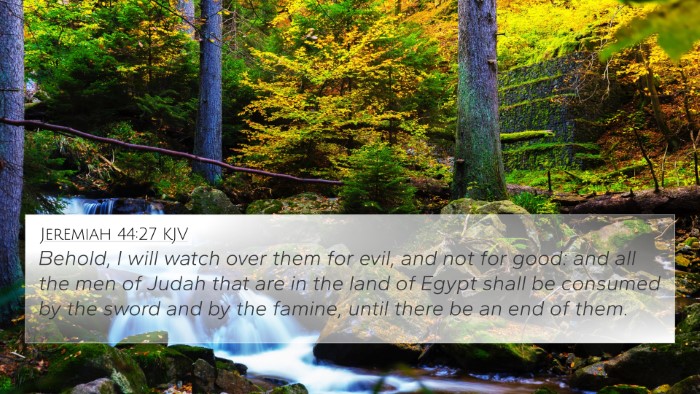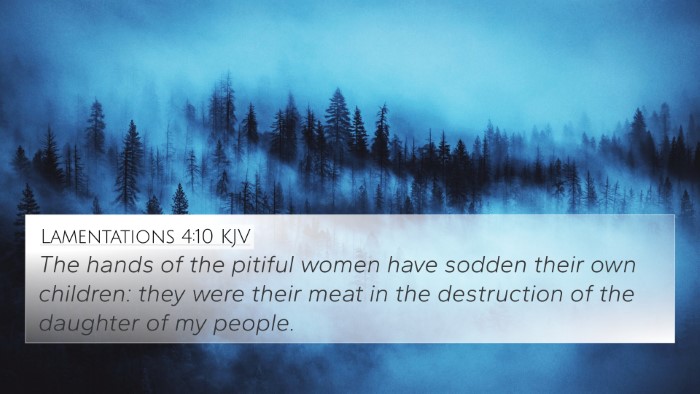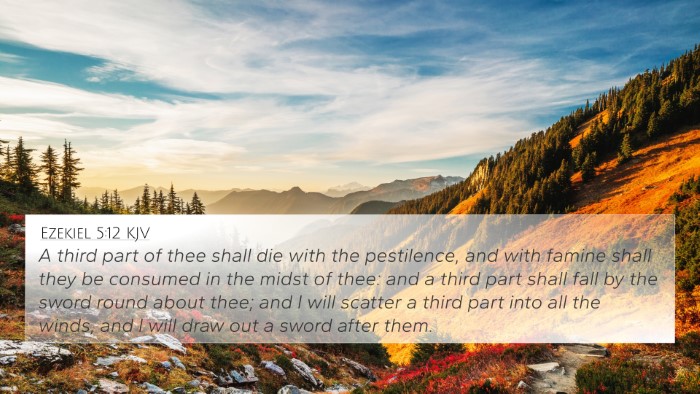Understanding Jeremiah 15:9
Jeremiah 15:9 states, "She that hath borne seven languisheth: she hath given up the ghost; her sun is gone down while it was yet day: she hath been ashamed and confounded: and the residue of them will I deliver to the sword before their enemies, saith the Lord."
This verse encapsulates profound themes of despair, loss, and the severity of judgment experienced during the period of Jeremiah’s prophetic ministry.
Summary of Meaning
In this section, we explore the meanings derived from public domain commentaries, synthesizing their insights for a robust understanding of the text.
Commentary Insights
Matthew Henry's Commentary
Matthew Henry interprets this verse as a metaphor for the fall of Judah, personifying the nation as a woman who has known the fullness of joy ('she hath borne seven') yet now faces desolation. The number seven symbolizes completeness or perfection, indicating that the woman had everything but ultimately loses it all, facing a fate that reflects divine judgment due to unfaithfulness.
Albert Barnes' Notes
Albert Barnes emphasizes the emotional depth of this verse, noting that the imagery of a mother mourning her lost children captures the desolation of Judah’s fate. The phrase 'her sun is gone down while it was yet day' conveys the abrupt end of hope and prosperity, showcasing the tragedy of sudden misfortune.
Adam Clarke's Commentary
Adam Clarke discusses the prophetic significance of this verse, suggesting that the 'residue' represents a remnant that will face dire consequences. Clarke highlights the duality of hope and despair, illustrating how the divine decree leads to the inevitable judgment while still emphasizing the potential for restoration in the remnants.
Cross-Referencing Related Verses
Understanding Jeremiah 15:9 becomes richer when we consider how it connects with other scriptures. Below are some relevant Bible verses that highlight similar themes and ideas:
- Isaiah 54:1 - "Sing, O barren, thou that didst not bear; break forth into singing, and cry aloud, thou that didst not travail with child..." (The call for joy amidst despair mirrors the ultimate hope despite present suffering.)
- Lamentations 3:12-18 - This passage reflects deep sorrow and grief over loss, paralleling the heartbreak expressed in Jeremiah 15:9.
- Romans 8:22 - "For we know that the whole creation groaneth and travaileth in pain together until now." (Both verses highlight a shared experience of anguish and longings for redemption.)
- Matthew 23:37 - "O Jerusalem, Jerusalem, thou that killest the prophets, and stonest them which are sent unto thee…" (This verse echoes the theme of sorrow for lost potential and rejection in the face of judgment.)
- Revelation 18:7 - "How much she hath glorified herself, and lived deliciously, so much torment and sorrow give her…" (A reflection on judgment akin to the lament of Jeremiah.)
- Psalms 139:7-10 - "Whither shall I go from thy spirit? or whither shall I flee from thy presence?" (The omnipresence of God and His judgment is a theme shared with Jeremiah’s lament.)
- 2 Corinthians 1:5 - "For as the sufferings of Christ abound in us, so our consolation also aboundeth by Christ." (This offers hope and parallels the theme of enduring suffering before eventual consolation.)
Thematic Bible Verse Connections
Jeremiah 15:9 fits into broader theological themes, portraying the tensions between judgment and mercy, despair and hope. Its connections can also be appreciated through comparative analyses with verses throughout Scripture.
Exploring Suffering and Hope
As we examine this verse, recurring themes emerge that underline the reality of suffering and the hope of restoration through divine presence:
- Each verse encapsulates the struggle of God’s people amidst trials and offers insights into the nature of God’s judgment.
- They create inter-Biblical dialogues that reflect humanity's condition and God’s redemptive plan, echoing through both Old and New Testaments.
Conclusion
In conclusion, Jeremiah 15:9 serves as a poignant reminder of the tragic impact of unfaithfulness and the depth of loss felt by nations under divine judgment. However, in exploring its connections to other scripture and themes, we find an encompassing narrative of suffering, hope, and eventual restoration that pervades the biblical text. Cross-referencing such verses not only enriches understanding but also grounds the believer in the vast thematic substance of Scripture.
Further Study Tools
For those interested in deeper exploration, consider utilizing:
- Bible concordance for finding connected themes.
- Bible cross-reference guides to identify related scriptures.
- Comprehensive Bible reference resources to aid in thematic studies.
- Cross-reference Bible study methods to facilitate understanding complex biblical themes.
